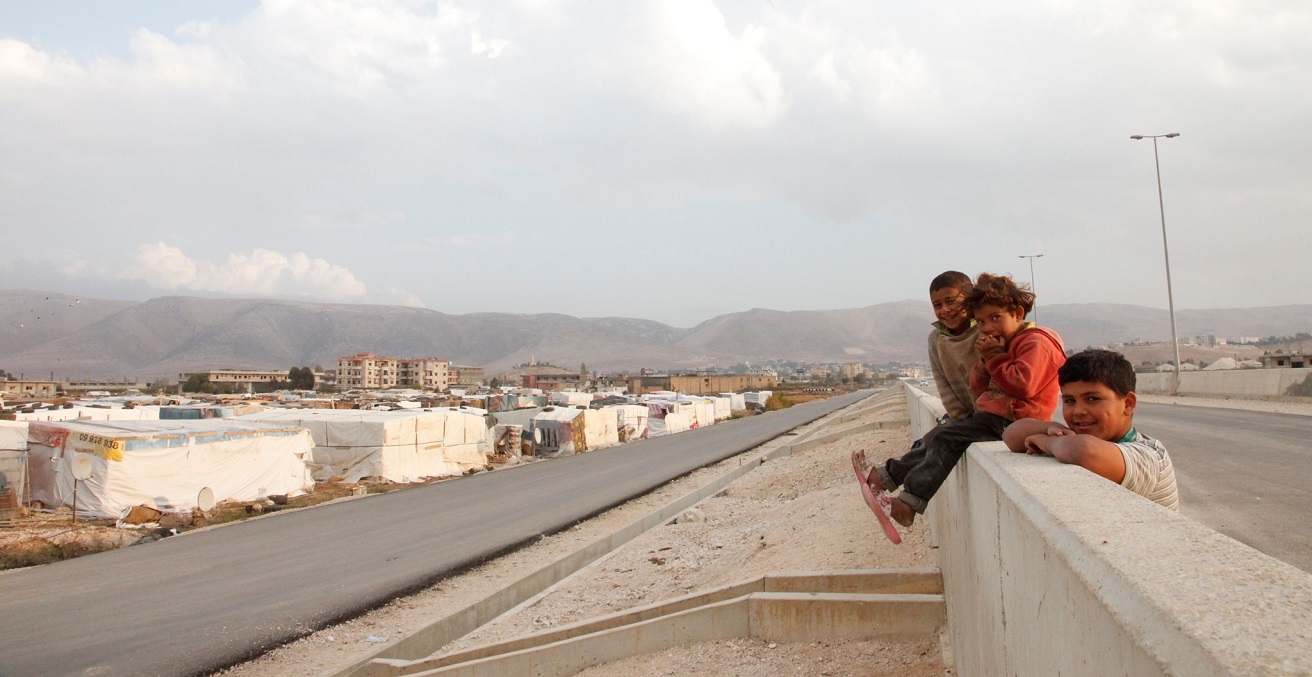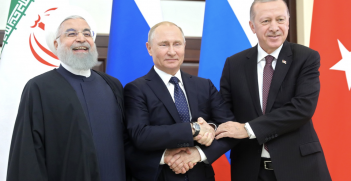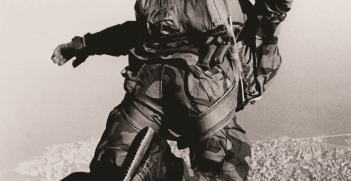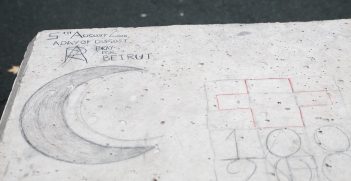Lebanese Political Elites and the Syrian Conflict: A Mutual Damage

The relationship between Syria and Lebanon can be best described as problematic friendship. With Lebanon’s deeply fragmented national consensus and sectarian divisions, it was inevitable the Syrian conflict would spill over to Lebanon more than other neighbouring countries.
Syria is perceived as either a good neighbour and ally, or as an occupier. The reason for that is due to historical standings and stand-offs between the two countries. Due to this sore relationship, the Syrian civil war became an additional element in that already problematic relationship. Lebanon’s weak state, sectarian divisions, and political vengeance have provided a fertile ground for Syrian fighters to use Lebanon as another field for their battles against Assad regime. Similarly, the Syrian war became an opportunity for some political leaders and factions to achieve their goals through aiding rebel groups or by directly involving themselves in the military conflict.
From 1990 to 2004, after the end of the Lebanese civil war, Syria played a big role in maintaining internal peace by acting as an overseer over political groups. This then paved the way for Syria to control the security and internal affairs of the Lebanese state, eventually resulting in full-fledged control of the country’s economic resources, military, and foreign affairs. However, the extension of Assad ally Emile Lahoud’s presidential term in 2004 was the first blow against Syrian intervention and control over Lebanon’s sovereignty. This extension created a sharp divide between political factions. Rafik Hariri, the former Prime Minister, Druze leader Walid Junblatt, and a number of other MPs opposed the extension, while Hezbollah, the Amal movement, and other Assad allies endorsed the extension.
Under threats and pressure, Hariri and his supporters eventually came around to endorse the extension of Lahoud’s term, but this was the beginning of polarisation in Lebanon. The assassination of Hariri a few months later was enough to institutionalise a sharp division between the two political blocs that eventually took the shape of a pro-Syria alliance, which would later come to be known as the March 8 bloc, and an anti-Syria alliance, which became known as the March 14 bloc. Subsequently, Syria was considered responsible for the assassination of Hariri for his constant disagreement with Syria’s meddling in the Lebanese state and its resources. In 2005, the Assad regime removed its military from Lebanon while maintaining a close alliance with Hezbollah and Amal. Naturally, Hezbollah was under the lens for supporting a regime held responsible for a number of political assassinations of major anti-Syrian intellectuals and politicians.
When the Syrian civil war erupted in 2011, some political factions saw it as an opportunity to get rid of the Assad regime. Reports have shown that there was increased arms support to Syrian rebels from Future Movement political group led by Saad Hariri, who was serving as a Prime Minister then and was also the son of assassinated Rafik Hariri, and facilitated by Oqab Sakr, a member of parliament. The younger Hariri saw this as a chance to get rid of a regime that was accused of assassinating his father and possibly weaken Hezbollah. But Hariri did not consider the future implications of this support. Weakening Hezbollah’s major ally in the region could have helped Hariri in his objective to disarm Hezbollah, a move that cost his party a great loss and humiliation in 2008 clashes. In addition, it would also have helped him overcome the growing power of Hezbollah as a regional player. On the other hand, reports also indicated a direct involvement with the Syrian army of Hezbollah fighters in Syrian towns. While recognising that a public awareness of Hezbollah’s fighters in Syria was a risky situation that could jeopardise Hezbollah’s reputation in the country and the region, it became increasingly difficult for Hezbollah to hide their involvement. Hezbollah thus used its conflict with Future Movement to frame their involvement and their strategy in Syria as a sectarian one. In other words, both sides used or exploited the Syrian war in order to eliminate, or at least weaken, the other.
After Hassan Nasrallah’s public statement about Hezbollah’s involvement in the fight against Syrian rebels, there were a series of immediate effects on the ground. What was interesting is that Nasrallah’s justification to take part in the conflict was framed within a sectarian tone – he claims that the party is protecting Shi’ite shrines from Sunnis, who represent the majority of the rebels. This narrative was met with serious concerns in Lebanon as Future Movement used the same sectarian tone to intensify its division with Hezbollah and their supporters as one against Shi’ites. This can be demonstrated in a number of clashes in the areas of Tripoli, Northeast Bekaa, and Saida. In the three cases, the clashes were predominantly carried out by Sunni groups (Future Movement) against Shi’ite groups (pro-Assad and pro-Hezbollah groups). So even though these groups may not necessarily have any direct link to the conflict in Syria, their clashes nevertheless have been shaped around it.
Additionally, after the Syrian refugee influx started, a number of countries took some measures to better prepare to host them. But in Lebanon, the polarisation between the two blocs was also demonstrated in the handling (or lack thereof) of the influx of over 1.5 million refugees. This number was categorically over the limit that a country of five million could handle, especially where national security is at risk. So while some political figures were raising their concerns about the un-accounted entry of Syrians fleeing their homeland, Hezbollah and their allies dismissed these concerns and saw the receiving of Syrian refugees as an extension of their support to the regime. Notwithstanding, according to Human Rights Watch, the humanitarian situation of the refugee camps is alarming and is the result of mismanagement and a lack of adequate services. Perhaps Hezbollah and their allies were expecting the refugees to return home quickly after a short stay in Lebanon. Of course, Hariri and his allies also had their bets on Assad’s regime falling within a year. Both sides were met with considerable disappointment from their supporters and their reputation damaged accordingly.
Hence, because of the deep-seated division and fragmentation between the political factions, it was then easier for the Syrian war to find a place in Lebanon and for Lebanon to become a second battle ground. If these divisions had not been previously created, then the Baabda declaration would have been honoured and used as an important tool to prevent the Syrian war from spilling over to Lebanon. Lebanon could have then been protected from the infiltration of various Islamist groups and the refugee influx could have been better managed.
Dr Mariam Farida is an Academic Learning and Language Facilitator and UNSW Middle East expert. Dr Farida has been awarded her PhD in Security Studies and Criminology. Her research interests include Middle East politics, non-state groups, global security, terrorism, counterterrorism operations, and national security. Her research has been published in journals such as International Review for Social Research, Journal for Policing, Intelligence, and Counter Terrorism, and Handbook of Terrorist and Insurgent Groups: A Global Survey of Threats, Tactics, and Characteristics. She is also the author of Religion and Hezbollah: Political Ideology and Legitimacy (Routledge, 2020).
This article is published under a Creative Commons Licence and may be republished with attribution.





